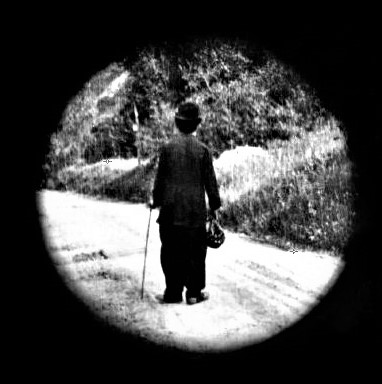
The readings for this Sunday’s mass have all the makings of a Charlie Chaplin comedy starring his “Little Tramp.” The basis of comedy is contrast and conflict, and the mission of spreading God’s word is filled with both. This is a heroic mission after all, but God always seems to choose people you’d least expect to be able to accomplish it.
A New York Times article written in the 70s quoted Chaplin as saying, “The human race I prefer to think of as the underworld of the gods. When the gods go slumming they visit the earth.”
Not a Christian tenet, but artists like Chaplin did like to take on the role of God through their works. They send their characters out on adventures to communicate a message. As the creator of HIS world, Chaplin had the kind of attitude toward his characters that we’d imagine OUR Creator having toward us. Through his comedies, Chaplin ridiculed mankind’s folly, but never lost his affection for the human race. And, his messengers always maintained their dignity.
Speaking from his Little Tramp’s perspective, Chaplin said:
“No matter how desperate the predicament is, I am always very much in earnest about clutching my cane, straightening my derby hat and fixing my tie, even though I have just landed on my head.”
So keep that iconic image in mind as we read Sunday’s gospel (Mk 6:7-13), in which Jesus prepares his men for their mission:
He instructed them to take nothing for the journey but a walking stick—no food, no sack, no money in their belts. They were, however, to wear sandals but not a second tunic. He said to them, “Wherever you enter a house, stay there until you leave. Whatever place does not welcome you or listen to you, leave there and shake the dust off your feet in testimony against them.”
In Sunday’s first reading (Am 7:12-15), just as any reluctant hero would, Amos admits that “prophet” is the last word he’d select to describe his lowly self:
“I was no prophet, nor have I belonged to a company of prophets; I was a shepherd and a dresser of sycamores. The LORD took me from following the flock, and said to me, Go, prophesy to my people Israel.”
Then we have Paul telling the Ephesians (Eph 1:3-14) that, like a character in God’s great play of life, he and his cohorts exist to accomplish their author’s will …
… destined in accord with the purpose of the One who accomplishes all things according to the intention of his will, so that we might exist for the praise of his glory, we who first hoped in Christ.
As we tramp through our own lives, we can only hope that by the time the credits roll, our story will have told God’s truth and made Him and our fellow cast members smile. [Check out the Chaplin montage at this link, accompanied by “Smile,” the beautiful song Chaplin wrote.]
–Tom Andel